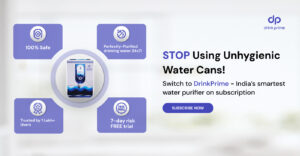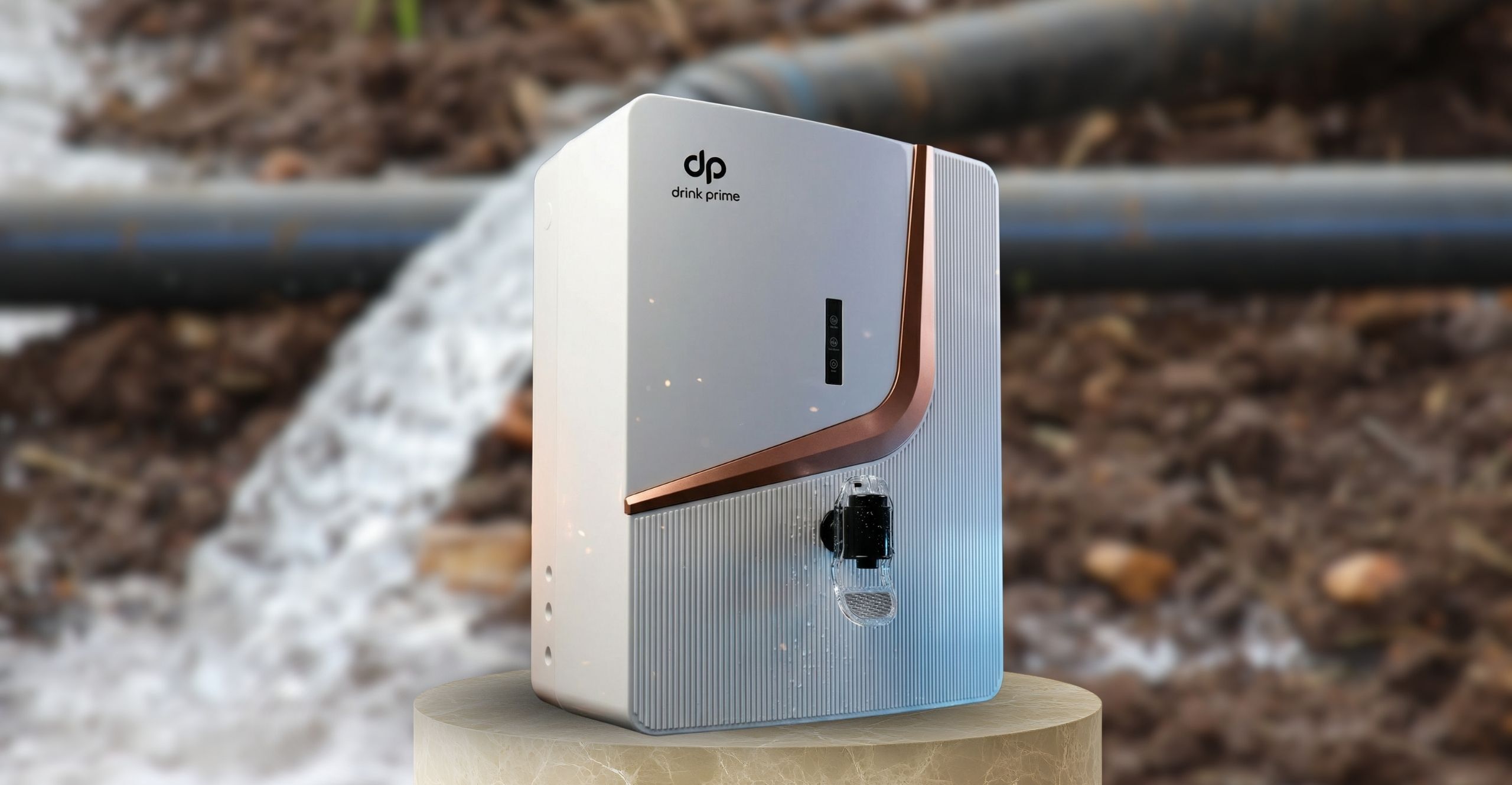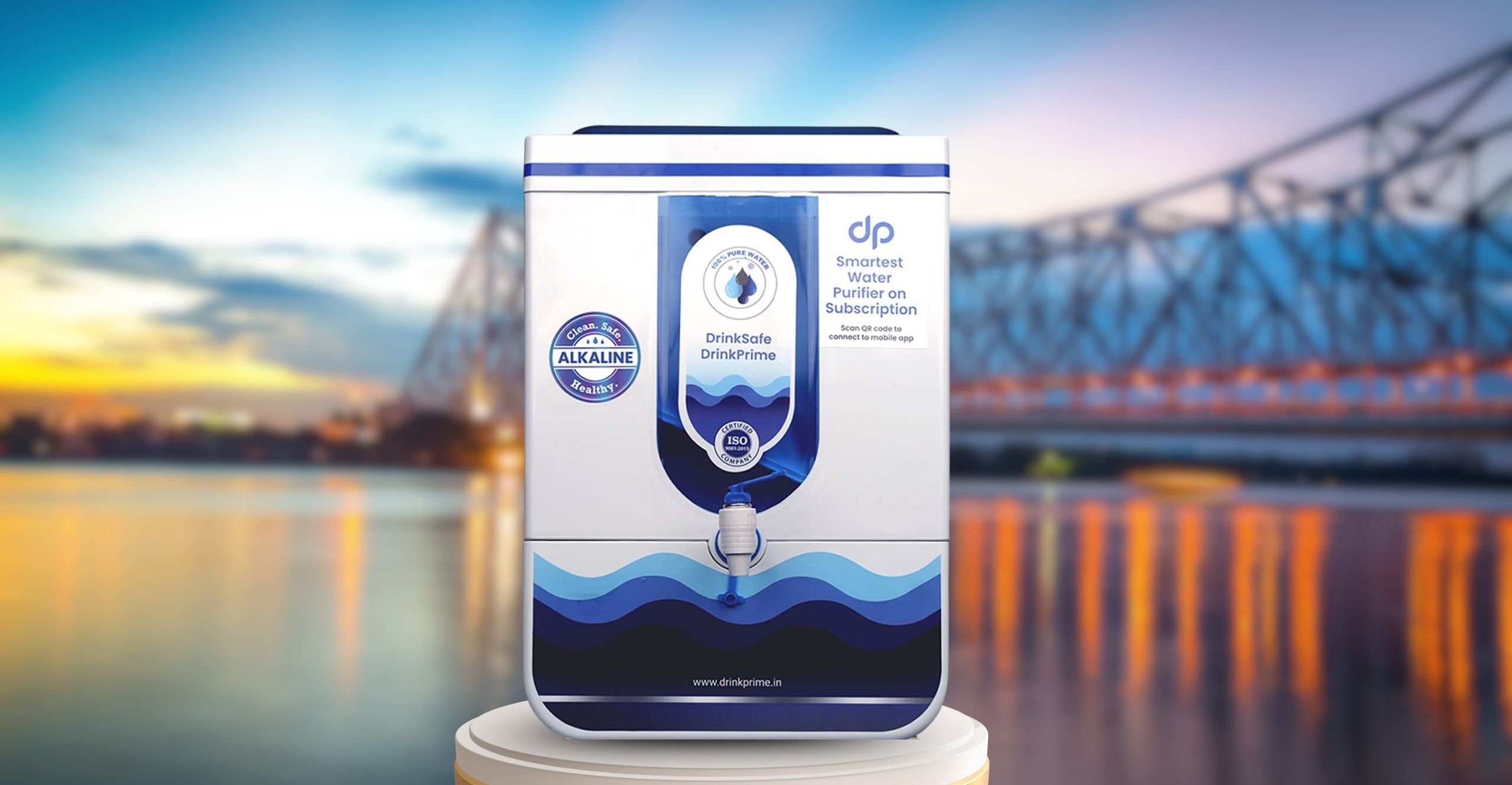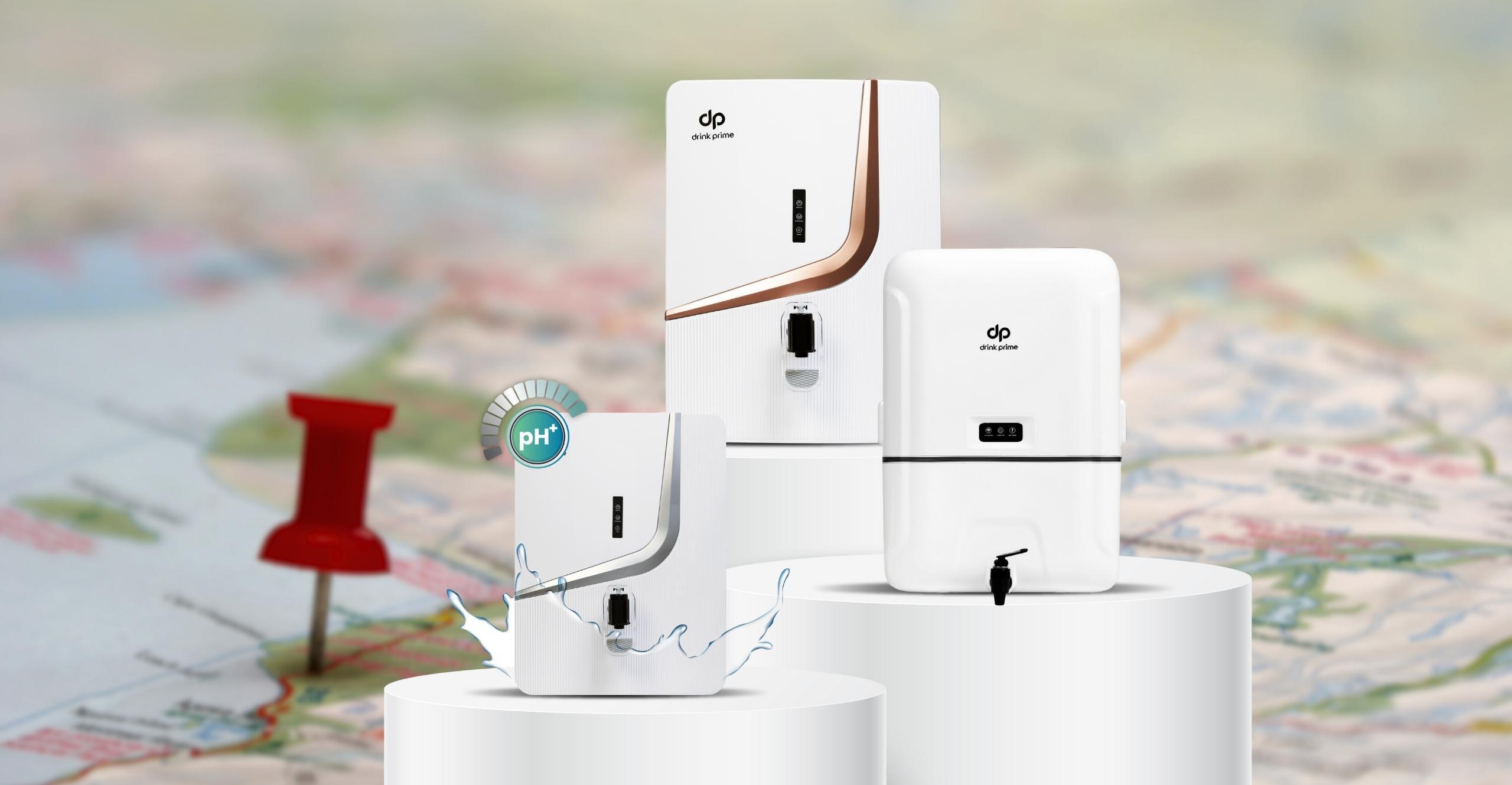Getting access to safe, clean drinking water has become increasingly difficult in a country like India, where water pollution is a stark reality. An RO water purifier which purifies water has become a household necessity, to ensure that you get access to safe drinking water. To increase the lifespan of a water purifier you need to invest in a good brand along with ensuring consistent maintenance. Here are some pointers on the factors that affect the longevity of water purifiers and some practical tips on how you can maintain your water purifier so that it functions effectively.
What is the expected lifespan of your water purifier?
Water purifiers have become an indispensable part of our modern lives. But like most appliances, water purifiers too have a short life span and may require maintenance. Due to the deteriorating quality of the source water, many RO filters take on the excessive load of filtering many contaminants.
This may lead to clogged filters as well as wear and tear on its components. The type of filters used also decides the life span, e.g., carbon filters need to be replaced more frequently than a filter like an RO membrane. Water purifiers are built to last for a long time.
An average water purifier’s lifetime is around 5 to 8 years if cared for properly. Professional cleaning of filters and regular checking for depreciation will ensure that you and your family have uninterrupted access to pure drinking water.
Related Reading: 8 Tips for the Maintenance of RO Water Purifier at Home
1. Product quality
Currently, there are many water purifiers available in the market to suit a wide range of budgets. But the quality of your water purifier has a significant bearing on its life span and effective functioning. Though you may save on the initial costs by installing a cheaper brand of water purifier, it may not be durable enough to withstand the quality of your source water. You may have to replace parts frequently and put up with substandard quality drinking water.
So, while investing in a water purifier, ensure that you check for brands with a solid reputation in the market, backed by positive customer reviews. Another factor to take into consideration is the certification by the concerned authorities, which is like a seal of approval for the brand’s reliability.
2. The usage frequency
The lifespan of a water purifier is also determined by how much you use it. For e.g., if you have a large family and require a large quantity of filtered water daily, then the filter will need to be replaced more frequently. If the RO purifier is used less, such as in a home with a single person, or used only during certain months, like in a holiday home, then the filter may last longer. Regular servicing is still recommended, to check on the general health of the filter.
3. The quality of the source water
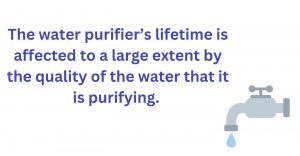
The water purifier’s lifetime is affected to a large extent by the quality of the water that it is purifying. If you live in an area where the source water available to you is highly contaminated with minerals, particulate matter, and pathogens, then the filter may be clogged easily and would need faster replacement. This will also affect the overall health of the water filter, causing wear and tear and lessening its life span.
4. Consistent servicing
One of the most crucial factors that can ensure the longevity of your water purifier is consistent maintenance. This includes professional servicing as well as cleaning the filter and the unit as per the manufacturer’s instructions. Failure to do so or neglect for a long period of time may translate to poor functioning of the water purifier and compromised quality of drinking water.
Ways To Maintain A Water Purifier For Optimal Performance
1. Regular maintenance and filter change
Consistent servicing is one of the most effective ways to ensure the optimal functioning of your purifier. It’s best to seek professional help to open the unit and check the parts. Regular cleaning of the water filter and replacement at the right time is also imperative for its functioning. Depending on the type of filter, replacement time may vary. For e.g., a carbon filter needs to be replaced faster than an RO membrane.
2. Self-cleaning
Regularly cleaning the water purifier unit is non-negotiable if you want it to work effectively. Cleaning the tank, tubes, and other components as per the instructions from the manufacturer will help prevent scaling and debris build-up which can impact its functioning. It is a good idea to set reminders to ensure that you don’t miss out on this important step.
3. Check for drips and leaks
If your water purifier is leaking or dripping water, it’s best not to ignore this and tackle it immediately. Getting a professional to rectify persistent leaks will help you save on a hefty service cost later. This will also ensure you get an uninterrupted supply of pure drinking water.
4. Use the filter regularly
Using the water purifier regularly will ensure lesser debris build-up. If you are not planning to use it regularly, flush out the purifier frequently to keep it functioning effectively.
5. Monitor water quality
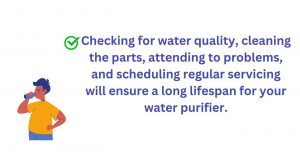
It is important that you monitor the quality of the filtered water periodically. This will help you ensure that the water purifier is working effectively. If the water quality is poor that may indicate that it’s time for servicing.
6. Schedule an AMC
This is an effective way to ensure that you do not forget to get your water purifier serviced and reduce hefty service bills. Ensure that you choose a trustworthy scheme from the host of options available in the market.
Get 7 Days Risk Free Trial
Conclusion
A water purifier, irrespective of the brand and cost is only as good as the quality and consistency of its maintenance. Checking for water quality, cleaning the parts, attending to problems, and scheduling regular servicing will ensure that your water purifier is bestowed with a long life span. This will enable you to enjoy unlimited access to safe pure water, always.

